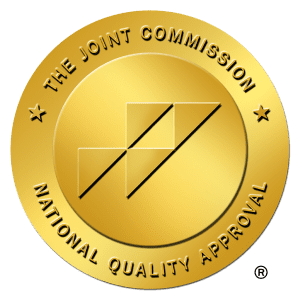
If you or a loved one is struggling with substance abuse and addictive behaviours, taking the first step toward recovery can feel overwhelming. The good news is that Ventura County has seen encouraging progress in addressing the addiction crisis, with fentanyl deaths down by nearly 37% from 2023 to 2024. This positive trend reflects the effectiveness of comprehensive behavioral health approaches, including medical detoxification programs that provide crucial emotional support during this vulnerable time.
What Is Medical Detoxification?
Medical detoxification refers to ridding the body of toxic, habit-forming substances under the supervision of a licensed treatment team. A physician typically heads this team and comprises nurses, clinical staff, substance abuse counselors, and therapists who are specifically trained in treating and managing addiction. When a patient experiences substance withdrawal, medical detoxification is safe and effective for eliminating substances from the body while providing crucial emotional support during this emotional turmoil.
Each step of the process involves careful monitoring by a physician-led medical team of experienced nurses and clinical staff trained in managing withdrawal symptoms and providing the privacy and dignity that every patient deserves during recovery.
The Critical Importance of Medical Supervision
Safety First: Life-Threatening Withdrawal Risks
One of the most significant benefits of medical detoxification is safety. For alcohol abuse, sedative-hypnotic, and opioid withdrawal syndromes, hospitalization (or some form of 24-hour medical care) is generally the preferred setting for detoxification, based on principles of safety and humanitarian concerns.
Withdrawal symptoms can be unpredictable and potentially fatal, particularly for:
- Alcohol dependency and alcohol abuse patterns
- Prescription opioid addiction
- Fentanyl dependence and overdose risks
- Benzodiazepine addiction
- Nicotine and other substance dependencies
Recognizing overdose signs and personal warning signs is crucial, as many people experience tremors during withdrawal, while others may experience more severe symptoms, including seizures and delirium, that require immediate medical intervention.
24/7 Medical Monitoring and Daily Check-ins
For many substances, withdrawal can cause fluctuations in heart rate, blood pressure and temperature, so these vital signs require careful monitoring by nursing staff through daily check-ins and continuous oversight. This ongoing monitoring ensures that any medical complications are addressed immediately, significantly reducing the risk of serious health consequences and helping patients sooner rather than later when complications arise.

Evidence-Based Benefits of Medical Detox
Higher Success Rates and Reduced Recidivism
Research demonstrates the clear advantages of professionally supervised detox programs. Recent studies show that patients who undergo medically supervised detox have significantly higher rates of completing long-term treatment programs compared to those who attempt unsupervised withdrawal. Quality medical detoxification programs throughout California show similar benefits, particularly when combined with comprehensive counseling and therapy sessions.
Effective Relapse Prevention Tool
The pain of withdrawal symptoms makes people in medically-assisted detox much more likely to complete it than those who attempt detox at home. Following a failed detox attempt, an individual’s odds of relapse skyrocket. Medical detoxification serves as an essential relapse prevention tool by providing:
- Professional symptom management
- Coping skills development during early recovery
- Identification of relapse triggers and stressors
- Development of a personalized plan for ongoing recovery
Long-Term Treatment Engagement and Matching
Studies show that detoxification and its linkage to the appropriate levels of treatment lead to increased recovery and decreased use of detoxification and treatment services in the future. Treatment matching – connecting patients to the most appropriate level of care based on their individual needs – is crucial for successful outcomes. Recovery leads to reductions in crime, general healthcare costs, and expensive acute medical and surgical treatments consequent to untreated substance abuse.
Comprehensive Care for Complex Conditions
Treatment of Co-Occurring Mental Illness
One often overlooked benefit of medical detoxification is the identification and treatment of co-occurring medical and mental health conditions. Some individuals with substance use disorders also have co-occurring mental illnesses or medical issues. Unfortunately, many people are unaware of peripheral health problems because the abuse of certain substances may suppress symptoms.
At quality local treatment facilities, medical professionals can address dual diagnosis conditions, including:
These conditions often require specialized counseling approaches, family counseling, and sometimes family therapy to address the complex interplay between addiction and mental health.
Medication-Assisted Treatment and Pharmacological Support
Medical detoxification programs can safely incorporate medication-assisted treatment when appropriate. Common medications used in medical detox include:
- Buprenorphine for opioid withdrawal management
- Methadone for longer-acting opioid dependencies
- Naltrexone to reduce cravings and prevent relapse
- Disulfiram for alcohol dependency treatment
- Naloxone availability for overdose prevention
The goals of these services are: 1) to provide the patient with a safe and humane withdrawal from chemicals of abuse; 2) to reduce the medical and psychiatric morbidity and mortality sometimes associated with acute withdrawal; and 3) to encourage the patient to engage in ongoing treatment.
Addressing the Ventura County Crisis
Ventura County continues to face significant challenges with substance abuse and overdose rates. In Ventura County, more than 200 people die each year from unintentional opioid overdoses. However, the county has made remarkable progress, with comprehensive approaches that include prevention, harm reduction, and treatment services that extend to correctional agencies and community organizations.
The availability of quality medical detoxification services is crucial to addressing this crisis. Each year at least 300,000 patients with substance use disorders or acute intoxication obtain inpatient detoxification in general hospitals while additional numbers obtain detoxification in other settings. Only about one-fifth of people discharged from acute care hospitals for detoxification receive substance abuse treatment during that hospitalization, highlighting the need for better treatment matching and care coordination.
The Detox Process: What to Expect
Medical detoxification typically involves several phases, each filled with comprehensive care and support:
Evaluation and Assessment
Medical professionals conduct comprehensive evaluations to understand:
- Medical history and current health status
- Substance abuse patterns and duration
- Co-occurring mental illness conditions
- Individual treatment needs and personal warning signs
- Development of a personalized plan for recovery
Stabilization and Coping with Cravings
According to medical experts, the length of medically supervised detox can vary depending on several factors, but it typically lasts between 5-14 days. The first 72 hours are often the most intense, with peak withdrawal symptoms requiring close medical monitoring and emotional support.
During this phase, the treatment team focuses on:
- Administering medications to reduce withdrawal symptoms
- Preventing seizures or other medical complications
- Teaching essential coping skills and coping tools
- Providing strategies for coping with cravings
- Developing self-awareness and self-regulation techniques
- Introducing mindfulness exercises and mindfulness-based techniques
Transition to Treatment and Continued Support
Medical detoxification is most effective when it serves as a bridge to comprehensive addiction recovery. Quality programs ensure patients transition to appropriate inpatient treatment or other evidence-based therapies through proper treatment matching.
This transition phase often includes:
- Introduction to self-help strategies and supporting concepts
- Motivational interviewing techniques to enhance readiness for change
- Development of a self-paced recovery plan
- Connection to Alcoholics Anonymous or other peer support groups
- Establishment of ongoing therapy sessions
- Introduction to mindfulness-based cognitive therapy when appropriate
Specialized Treatment Approaches
Trauma-Informed Care and Emotional Support
Many individuals struggling with addiction have underlying developmental trauma that contributes to their substance abuse. Quality medical detoxification programs incorporate trauma-informed approaches, recognizing the connection between trauma and addiction while providing crucial emotional support during this vulnerable period of emotional turmoil.
Holistic Treatment Integration and Wellness Strategies
The best medical detoxification programs integrate holistic treatment approaches alongside medical care. This comprehensive approach addresses not just the physical aspects of withdrawal but also incorporates:
- Physical exercise programs are appropriate for recovery
- Mindfulness-based techniques and meditation
- Sensory Plan development to manage triggers
- Introduction to various coping tools and strategies
- Development of self-awareness practices
This integrated approach helps patients develop essential coping skills while addressing the emotional and spiritual components of early addiction recovery.
The Importance of Professional Care
Why “Cold Turkey” Doesn’t Work
Relying on willpower or quitting “cold turkey” without medically-supervised detoxification is not recommended due to potentially fatal withdrawal symptoms and the high risk of relapse. Professional medical supervision dramatically improves both safety and success rates while providing patients with appropriate coping skills and emotional support.
Many people attempt self-detox as a cue/reminder of their determination, but without proper medical oversight, they often face dangerous withdrawal complications, increased risk of overdose if they relapse, lack of proper symptom management, absence of professional counseling and support, and no development of essential relapse prevention tools.
Setting the Foundation for Addiction Recovery
Medical detoxification is most effective as a component of a larger treatment program that addresses addiction’s underlying emotional, spiritual and behavioral causes. This integrated approach ensures that detox serves as a strong foundation for long-term addiction recovery rather than just a temporary solution.
Quality programs provide patients with:
- Comprehensive assessment and personalized plan development
- Access to substance abuse counselor expertise
- Integration with behavioral health services
- Development of essential coping tools for ongoing recovery
- Connection to appropriate follow-up care and support systems
Moving Forward: Resources and Support
If you’re considering medical detoxification in Ventura County, remember that help is available through various local treatment facilities and programs. The county offers various resources, including:
- Comprehensive assessment services and treatment matching
- Connection to appropriate inpatient rehab or outpatient program options
- Support for families through family and aftercare programs
- Access to substance abuse counselor services
- Contingency management programs that provide reward systems for positive recovery behaviors
- Text messaging support and daily check-in services for ongoing monitoring
- Integration with behavioral health services and mental health support
For those ready to take the first step, professional medical detoxification provides the safest, most effective path toward addiction recovery. The benefits extend far beyond managing withdrawal symptoms – they include comprehensive medical care, treatment of co-occurring mental illness, development of essential coping skills, and the foundation for lasting sobriety.
Taking the Next Step
Addiction recovery is possible, and medical detoxification is often the crucial first step on this journey. With Ventura County’s decreasing overdose rates and increasing availability of quality treatment options, there has never been a better time to seek help.
Remember, understanding addiction is the first step toward overcoming it. Professional medical detoxification programs provide the medical expertise, emotional support, and comprehensive care necessary to begin your addiction recovery journey safely and successfully.
If you or someone you love is struggling with substance abuse and addictive behaviours, don’t wait. Contact Grata Health today.
